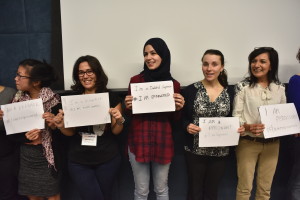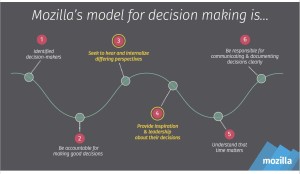Tuesday March 8 2016 is International Women’s Day (IWD), an event launched just over 100 years ago to promote equal rights for women. IWD is officially celebrated in many countries and by the United Nations.
This year I’m much more focused on marking International Women’s Day than ever before. There are two drivers for this. On the one hand, there has been important progress to date and many women in the world have ascended to new levels of empowerment. On the other hand, there is a great deal of critical work still needed. As the World Economic Forum’s annual The Global Gender Gap Report 2015 notes, “Ten years of measuring the global gender gap has helped us understand how lack of progress is damaging to global economic growth, and given us insights into how practical measures can support growth and improve the quality of life for women worldwide.” Governments around the world have recognized the remaining needs by including “Gender Equality” in the United Nations shared goals for the future, known as the “Sustainable Development Goals.” Empowering women to reach full potential has many aspects, and each one of us with good will can make valuable contributions.
I am particularly focused on the role the Internet can play in improving the lives and opportunities of women, girls and their families. The Internet is an unusual development because its core design principles are to provide the maximum amount of opportunity for the maximum number of people. In the tech world we use phrases such as “decentralized” or “placing decision-making at the edges of the system rather than the “center” or “open” or “interoperable” or “permission-less” to explain this extraordinary nature of the Internet. Sometimes we shorten this to “the Open Internet.” Whatever the phrase, the meaning is a system where more people have opportunity to innovate and to solve problems that are important to them. An opportunity like the Open Internet comes along very rarely, maybe once in many generations, and so I want to make sure that its benefits are available to all of humanity. Indeed, it is crystal clear to me that the Open Internet is they key to development that is inclusive, innovative and sustainable.
For this reason I am honored to participate in the United Nation’s’ first High Level Panel on Women’s Economic Empowerment, which was launched this January. I am eager to bring the possibilities that ICT and the Internet bring for empowering women into the work of the Panel. This involves learning for me, as this is a global topic and my Silicon Valley experience is only a piece of the picture. At Mozilla we’ve learned a lot and benefitted from our participation in the US State Department’s TechWomen program, which brings professional women in technology fields to spend time with Silicon Valley technology organizations. The women Mozilla has hosted through this program have been impressive, inspiring, and the source of much learning for Mozilla and for me. Similarly we have learned a great deal from the Outreachy program, which brings people from underrepresented groups, including women, to working internships in free and open source software organizations. And of course I learn an enormous amount from the thousands of Mozilla volunteers as well as the organically developed Women@Mozilla program.
Recently Anar Simpson (Special Advisor to me on the topic of Women, Girls and Technology) and I followed up with delegation trips to join women professionals in technology in Jordan, the UAE and Zimbabwe. In Jordan the TechWomen designed the “I Am Empowered” campaign which reflects the degree of progress we’ve made to date.

Photo Credit: Agnes Monpanari
The input from these activities will help form my technology related contributions to the Panel. Similarly I’ll be gathering input from Mozilla community members, who build and teach and spread the benefits of the Open Internet around the globe. And of course, from technology leaders in Silicon Valley, so that together we can make greater strides for women’s economic empowerment.


